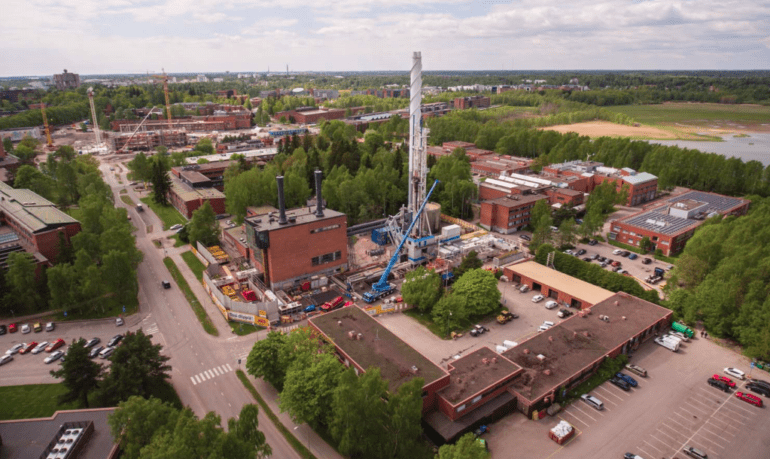TL;DR:
- IMLA and Herrenknecht Vertical collaborate on AI-based noise reduction for geothermal drilling.
- Project “KI Bohrer” secures EUR 670,000 funding from the Federal Ministry of Education and Research.
- Geothermal drilling often runs 24/7, causing noise concerns in urban areas.
- Current noise management involves monitoring, scheduling, and manual control adjustments.
- AI will collect data and guide engineers to predict noise levels based on drilling parameters.
- Goal: Improve social acceptance, profitability, and expand geothermal energy projects.
- Industry veteran Ulrich Hahne expresses excitement for AI integration.
Main AI News:
In a strategic collaboration, the Institute for Machine Learning and Analytics (IMLA) at Offenburg University of Applied Sciences and Herrenknecht Vertical GmbH have embarked on a groundbreaking research project aimed at harnessing artificial intelligence (AI) to address the noise concerns associated with geothermal drilling. This innovative initiative seeks to alleviate the disturbances caused by geothermal drilling activities and bolster societal acceptance, particularly in densely populated urban areas.
Termed “KI Bohrer” or “AI Drill,” this project has secured substantial funding of EUR 670,000 from the Federal Ministry of Education and Research. The research endeavor is slated to continue until the conclusion of 2026.
While geothermal drilling operations may not inherently generate more noise than other large-scale projects, their distinct feature lies in the necessity to operate round the clock to maximize efficiency and cost-effectiveness. Consequently, the impact of noise on neighboring communities and adherence to legal noise thresholds becomes a pivotal aspect of project planning. Presently, this is managed through a multifaceted approach, encompassing continual monitoring of sound emissions, optimizing construction site logistics by scheduling noisy tasks during specific hours, and employing active noise reduction techniques via manual control parameter adjustments for drilling.
Dr. Janis Keuper, overseeing the project as the head of IMLA, emphasizes, “Our goal is to enhance the acceptability of geothermal energy initiatives while simultaneously boosting their financial viability. These dual enhancements could make a substantial contribution to the extensive expansion of geothermal energy and the realization of overarching climate objectives.”
The research endeavor introduces a novel methodology to mitigate noise during drilling operations through AI optimization. The initial phase of this study involves the collection of extensive data from Herrenknecht Vertical’s drilling activities across several prominent European cities. Subsequently, the AI system will undergo training using this dataset, enabling it to provide informed guidance to drilling engineers concerning anticipated noise levels based on specific drilling parameters.
Ulrich Hahne, Managing Director of Herrenknecht Vertical GmbH, expresses enthusiasm about the prospect, noting, “For nearly two decades, we have been pioneering innovations for efficient and secure geothermal drilling. Our commitment to this objective remains unwavering, and the incorporation of AI promises transformative research outcomes.“
Conclusion:
The integration of AI into geothermal drilling operations, as demonstrated by the “KI Bohrer” project, represents a significant advancement for the market. This technology not only addresses noise issues but also enhances the feasibility and public acceptance of geothermal energy initiatives. By optimizing drilling processes through AI, the industry can expect increased profitability and greater momentum in achieving broader climate goals, positioning it as a key player in the renewable energy landscape.

